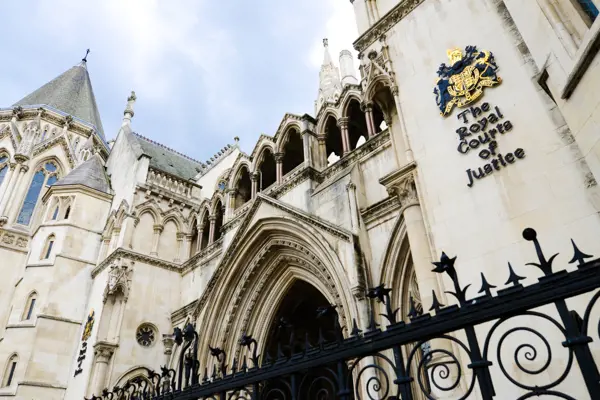
Latest case could hold the key to the future power of specialist tribunals
The powers of specialist tribunals could be under threat if the government wins its latest appeal
Posted on 20 February 2018
An important constitutional case which could see the powers of specialist tribunals curtailed if the government wins its appeal is being heard in the Court of Appeal today.
Three lord justices of appeal, Lord Justice Flaux, Lord Justice Leggatt and Lord Justice Leveson will hear the appeal from the government concerning the powers of the Social Security Tribunal.
Lucy Cladd, a lawyer from law firm Leigh Day, who are representing the Carmichael’s, explains the background to today’s hearing.
"The case was originally heard in the First-tier Tribunal (FTT) in April 2014, when Mr Carmichael had brought the appeal against the decision to apply the bedroom tax to his housing benefit allowance, on the basis that he was under-occupying his house by having a second bedroom.
"He considered the bedroom tax should not be applied to his and his wife’s housing benefit because his wife had severe disabilities and needed a second bedroom for medical reasons.
"His appeal was successful," added Ms Cadd.
The judge found that bedroom tax regulations were in breach of the couple’s rights under the Human Rights Act, that they were entitled to two bedrooms and that the under-occupancy reduction of 14% should not have been imposed.
In a separate but related court case, Mrs Carmichael successfully challenged the bedroom tax regulations in judicial review proceedings heard in the Supreme Court; the judgment was handed-down in November 2016. The country’s highest court ruled that the government had unlawfully discriminated against Mrs Carmichael through the implementation of the under-occupancy rules.
Following the Supreme Court’s decision and despite their defeat, the government chose to pursue their appeal of Mr Carmichael’s case, i.e. the decision of the FTT of April 2014 (this had originally been stayed until the Supreme Court heard Mrs Carmichael’s regulatory challenge). The government argued the remedy given in the FTT (to disapply the bedroom tax to people with disabilities who need a second bedroom for medical reasons) is not one which can be provided by the FTT.
The Upper Tribunal heard the government’s appeal in March 2017. In its judgment, the Upper-tier Tribunal found that the First-tier Tribunal had come to the correct conclusion, that the Carmichael’s housing benefit should not be reduced by 14%, however, that the FTT had arrived at that conclusion by an incorrect legal route.
In the judgment, the three judges, Mr Justice Charles, Judge Lloyd-Davies and Judge Wikeley, stated:
‘…Our conclusion is that the First–tier Tribunal arrived at the correct outcome in this appeal but by the wrong route….What the tribunal should have done was to direct the local authority to calculate the claimant’s housing benefit entitlement without making a deduction of 14% for under occupancy to avoid an unlawful breach of Mr (or Mrs) Carmichael’s Article 14 rights… The result is the same, namely that no deduction operated.’
The judgment confirmed that the FTT had the power to provide a remedy to benefits claimants, where the literal application of social welfare regulations would result in a breach of their rights under the Human Rights Act.
The government appealed the decision of the Upper Tribunal, and it is this appeal which is due to be heard in the Court of Appeal today.
Mr Jayson Carmichael said:
"It’s an absolute disgrace that disabled families have to put their lives into fighting for human rights in 2018. We hope to ensure that everybody in our situation is paid their full entitlement to housing benefit, a position that we were able to secure by using the Human Rights Act to challenge the Bedroom Tax."
Lucy Cadd, from law firm Leigh Day, added:
"Should the government win this case, it would severely curtail the powers of the social security tribunal. The tribunal would no longer be able to address the injustice that is caused to a social welfare claimant by the application of regulations that breach their rights protected by the Human Rights Act.
"It is another example of the government seeking to undermine disabled people and social welfare claimants in general.
"The case is also constitutionally important with far-reaching implications that could apply to all social welfare claimants, and even to other areas of law in which individuals’ cases are heard by specialist tribunals, such as employment or immigration, for instance."

